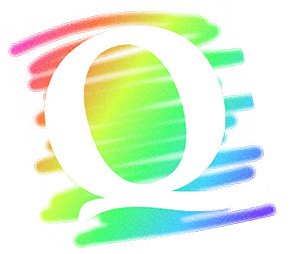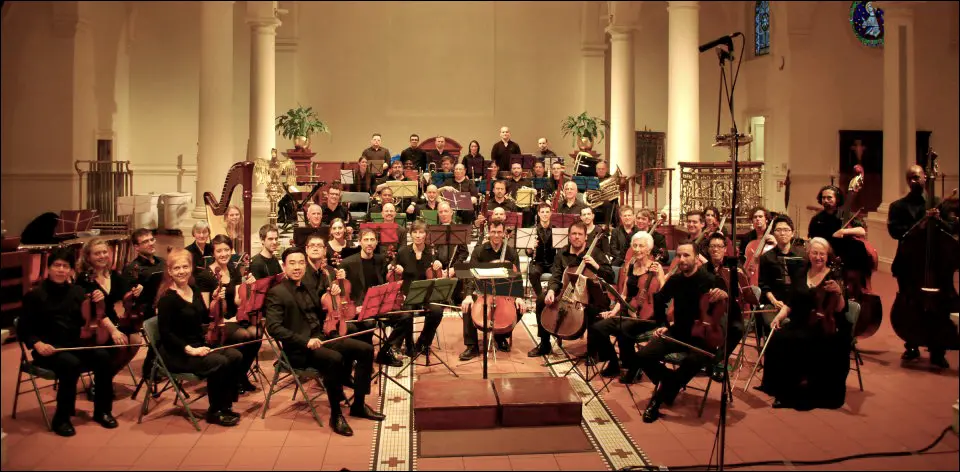
“Queerly Beloved”: The Queer Urban Orchestra Concert, A Review
The Marlowsphere (Blog #161)

The Queer Urban Orchestra (QUO) concert March 15, 2025—at St. Ann and The Holy Trinity Church, 157 Montague Street in Brooklyn—was not only an evening of musical offerings, but it was also a political statement.
The theme of this evening’s concert was “Something old, new, borrowed, and blue.” Appropriately enough, the first offering was Felix Mendelssohn’s “Wedding March” from “A Midsummer Night’s Dream.” It was a rousing rendition and immediately brought the capacity audience to singular attention.
Following this opening “old” offering, Artistic Director and Conductor David Bloom began his comments to the audience with “Queerly beloved. . .,” a bending of the traditional “Dearly beloved, we are gathered here today. . .” uttered by clergy at weddings.
David Bloom, Artistic Director, QUO
Bloom made clear that the evening’s concert was not only a musical event, but it was also a celebration of the June 2015 Obergefell v. Hodges Supreme Court decision that made same-sex marriages legal across the United States. Bloom made direct reference to the current conservative calls to reverse the gains the LGBTQ community has enjoyed since 2015. There was no argument from the clearly supportive audience.
“Wedding March” was followed by Mozart’s spritely “Haffner” Symphony No. 35., followed in turn by Yaz Lancaster’s “new” orchestral work “Solace.” Self-described as an “experimental” composer, “Solace” was more contemporary than experimental. The musical colors were rich and varied and showed composer Lancaster had a mastery of the infinite possibilities a full symphony orchestra offers.
This “new” musical offering was also not without its political aspects, although in this instance the statement was brief, but blatant. In the “straight’ musical world when a conductor takes the podium, he or she shakes the concertmaster’s hand. In this instance, conductor Nolan N. Dresden kissed concertmaster Phong Ta on the cheek. It was fitting for the evening’s proceedings.
The second half of the concert consisted of “borrowed” musical works, including Handel’s “Overture in D minor” with its enticing fugue, Beverly Glenn-Copeland’s “Winter Astral” orchestrated by Maestro Bloom, and the mischievous “Gobbledigook” by Sigur Ros, also orchestrated by Bloom.
But the major highli
ght of the evening’s performance was the “something blue,” Gershwin’s “Rhapsody in Blue,” with James Adler at the piano. This 1924 piece, composed by Gershwin in five weeks, never fails to bring an audience to its feet. This performance was no exception. The applause was extended, and deservedly so, not just for the soloist, but also for the QUO.
The Queer Urban Orchestra (QUO), founded in 2009, is a musical organization aligned with the LGBTQ+ community dedicated to the promotion of fine arts in the New York City metropolitan area. Its membership is open to all adult musicians regardless of age, race, religion, sexual orientation, or gender identity.

This is another instance of how the arts transcends politics. If you were to close your eyes and did not see how the musicians were dressed or carried themselves, you would not know this is a “queerly” oriented ensemble. What carried the evening, though, was the quality choice of music and performances, and the quality of respect and acceptance among the musicians and audience members alike.
Eugene Marlow, Ph.D. © 2025
